Raúl Gimenez
출생 : 1950-09-14, Santa Fe, Argentina
사망 : 1994-02-25

Self (archive footage)
When director Daniel Schmid grew up, his parents ran a hotel in the Alps, and this singular setting was to influence his film. Rather by coincidence he came to Berlin in the early 1960s and became part of the new German wave. Schmid worked with, among others, Wenders and Fassbinder, for example as an actor in Wender’s The American Friend. He met Ingrid Caven, who was to play a diva in several of his films. This is a documentation of a part of modern European film history and a good analysis of artistry and how it corresponds to the individual behind the camera. A wealth of archival footage brings us close to many directors and actors in Schmid’s circle. If you’ve never seen a Daniel Schmid film, you are sure to want to after watching this portrait of his life.

Production Design
The formerly great Swiss hotel which Valentin's family owned when he was a boy has been emptied and is about to be torn down. He revisits the magical site's empty halls and ballrooms.

Costume Design
Frustrated with her life, a Parisian tells her philandering husband about her lover.

Production Design
Frustrated with her life, a Parisian tells her philandering husband about her lover.

Production Design
Suzy, a beautiful woman, is coming back to Paris to attend the funeral of her lover, a married man. Cecile, his wife, is holding Suzy responsible for his suicide. By finding Suzy in Paris, Cecile is trying to seek the truth by playing a psychological game on her.
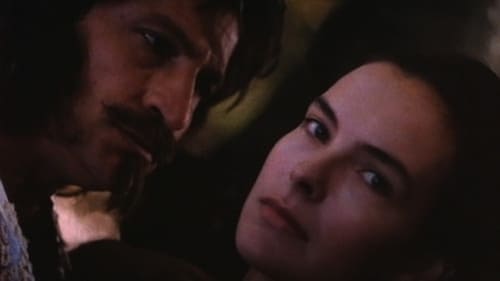
Production Design
A journalist is assigned to interview an eccentric anthropologist who has exhumed the skeleton of Jörg Jenatsch, a revered freedom fighter who was mysteriously murdered in 1639. Initially disinterested, the journalist begins to uncover unflattering truths about the national hero and experiences visions in which he seems to be witnessing events that transpired over 300 years ago. As he obsessively pursues the investigation, his personal life and his grip on reality disintegrate, drawing him relentlessly toward the fatal carnival at which Jenatsch was killed.

Le chauffeur de taxi
A journalist is assigned to interview an eccentric anthropologist who has exhumed the skeleton of Jörg Jenatsch, a revered freedom fighter who was mysteriously murdered in 1639. Initially disinterested, the journalist begins to uncover unflattering truths about the national hero and experiences visions in which he seems to be witnessing events that transpired over 300 years ago. As he obsessively pursues the investigation, his personal life and his grip on reality disintegrate, drawing him relentlessly toward the fatal carnival at which Jenatsch was killed.

Emilio
A diverse group of guests gather in a small hotel in Paris to contemplate the state of their lives in this pretentious drama. Joseph Goldman (Fernando Rey) is a washed-up Hollywood actor making a living in the dinner-theater circuit. Accompanied by his wife Sarah (Carole Regnier), Goldman meets Frederique (Berangere Bonvoisin), who is hiding from her former lover. French financier Arthur (Fabrice Luchini) hopes to get into the film industry and bends the ear of a British director (Michael Medwin). The talkative film has little action, and none of the characters evoke much interest or resolve their dilemma.

Mindou

Ernest la gâchette
Directors Jean-Henri Roger and Juliet Berto begin this thriller with sequences on the contemporary politics of southern France and the infiltration of organised crime into real estate development there: crime bosses were torching forest tracts to make way for their development schemes in the early 1980s. In the fictionalised story, Paula Barretto is caught in this underworld because her father was involved in the drug business, her brother is in the real estate scam, and her lover is an armed thief. Although she tries to get out of her corrupt and dangerous environment, it is not an easy task when even the police officers cannot be trusted, and the underworld has informants everywhere.

Production Design
A woman goes to Cannes and, lost in its chaos and unable to obtain tickets, ends up watching it on television from her hotel room.

Production Design
Portrait of filmmaker Douglas Sirk.
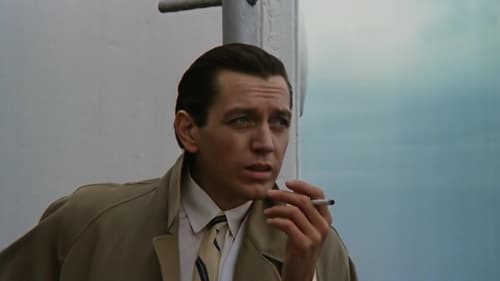
Thanks
Set amid the European community in an unspecified North African country, a colony on the verge of nationalism just before the war. And colonized is what happens to a French diplomat, Julien Rochelle, when he meets the mysterious beauty Clothilde de Watteville. Schmid 's favorite axiom, that love is projection, never had such a thorough airing. Is Clothilde really the wife of a French official now holed up in Siberia? Or is she Hecate, goddess of black magic and devourer of the Arab boys she meets far from the European quarter? Only our projections know for sure; for the rest, she is a "woman looking out into the night." Drawn from a novel by Paul Morand, who based the main character on his wife Helene, Schmid's film achieves an atmosphere of magic in which psychological credibility is not so much absent as irrelevant-a film that distances itself from the drama it invokes, perhaps as the elusive Clothilde turns her back on the madness she provokes.

Production Design
Set amid the European community in an unspecified North African country, a colony on the verge of nationalism just before the war. And colonized is what happens to a French diplomat, Julien Rochelle, when he meets the mysterious beauty Clothilde de Watteville. Schmid 's favorite axiom, that love is projection, never had such a thorough airing. Is Clothilde really the wife of a French official now holed up in Siberia? Or is she Hecate, goddess of black magic and devourer of the Arab boys she meets far from the European quarter? Only our projections know for sure; for the rest, she is a "woman looking out into the night." Drawn from a novel by Paul Morand, who based the main character on his wife Helene, Schmid's film achieves an atmosphere of magic in which psychological credibility is not so much absent as irrelevant-a film that distances itself from the drama it invokes, perhaps as the elusive Clothilde turns her back on the madness she provokes.
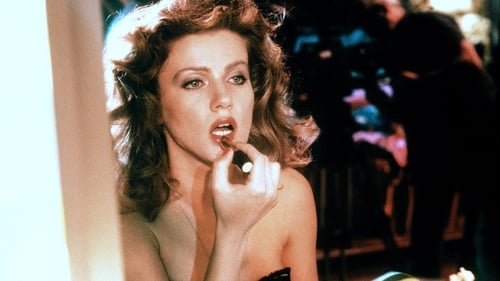
1st Waiter (uncredited)
서른 여섯 해라는 짧은 생애에 만든 마흔 한편의 논쟁적인 영화들 중 파스빈더의 최고 걸작이라고 말할 수 있다. 세계 2차 대전이 끝나고 경제 기적을 만들어낸 독일사회의 병폐를 온 몸으로 겪으면서 자라난 파스빈더는 이 시기 자본주의가 빚어낸 모순과 타락한 인간상을 다수의 영화에서 다룬 바 있다. 조셉 폰 스텐버그의 에서 이야기의 뼈대를 가져온 에는 살아있는 색깔, 한 씬 내내 원을 그리며 도는 특이한 카메라 움직임, 팬으로 길게 움직이는 등이 멜로드라마의 틀 안에서 우화적으로 사용된다. 반자본주의적인 조악한(?) 영화형식과 너무나 염세적인 결말은 내내 영화를 보고 마지막 화면을 맞이하는 관객으로 하여금 가슴 서늘하게 한다. 그러나 파스빈더의 말대로 세상은 여전히 타락해 있고 가난한 자와 힘없는 자들이 설 자리는 여전히 없다는 점에서 파스빈더가 염세적인 것이 아니라 세상이, 인간이 시니컬하다는 것을 새삼 다시 절감하게 한다. 마음이 아프다.
안톤 체홉의 ‘푸른 천사’와 장 르노와르의 ‘게임의 법칙’을 인용한 풍자극이다

Production Design
서른 여섯 해라는 짧은 생애에 만든 마흔 한편의 논쟁적인 영화들 중 파스빈더의 최고 걸작이라고 말할 수 있다. 세계 2차 대전이 끝나고 경제 기적을 만들어낸 독일사회의 병폐를 온 몸으로 겪으면서 자라난 파스빈더는 이 시기 자본주의가 빚어낸 모순과 타락한 인간상을 다수의 영화에서 다룬 바 있다. 조셉 폰 스텐버그의 에서 이야기의 뼈대를 가져온 에는 살아있는 색깔, 한 씬 내내 원을 그리며 도는 특이한 카메라 움직임, 팬으로 길게 움직이는 등이 멜로드라마의 틀 안에서 우화적으로 사용된다. 반자본주의적인 조악한(?) 영화형식과 너무나 염세적인 결말은 내내 영화를 보고 마지막 화면을 맞이하는 관객으로 하여금 가슴 서늘하게 한다. 그러나 파스빈더의 말대로 세상은 여전히 타락해 있고 가난한 자와 힘없는 자들이 설 자리는 여전히 없다는 점에서 파스빈더가 염세적인 것이 아니라 세상이, 인간이 시니컬하다는 것을 새삼 다시 절감하게 한다. 마음이 아프다.
안톤 체홉의 ‘푸른 천사’와 장 르노와르의 ‘게임의 법칙’을 인용한 풍자극이다
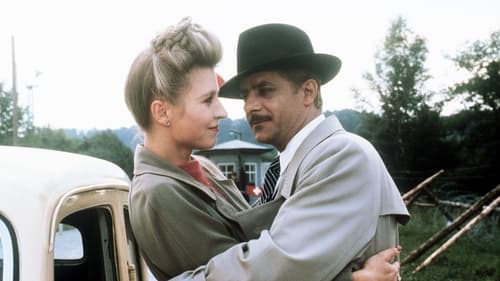
Blonsky
1938년 취리히. 독일인 빌키는 술집에서 일하고 있다. 빌키는 스위스인 음악가 로베르트 멘델스존을 사랑하게 된다. 아들이 독일인과 관계하는 것을 반대한 로베르토의 아버지는 빌키가 스위스로 돌아오지 못하도록 할 수 있었다. 빌키는 일에서는 운이 좋았다. 그녀가 전에 취입했던 음반이 인기를 얻게 되며 스타가 된다. 그 와중에 빌키는 나찌의 비밀경찰과 엮이지만 결국에는 전쟁에서 살아 남는다. 하지만 로베르토는 결혼해서 행복하게 살고 있다.
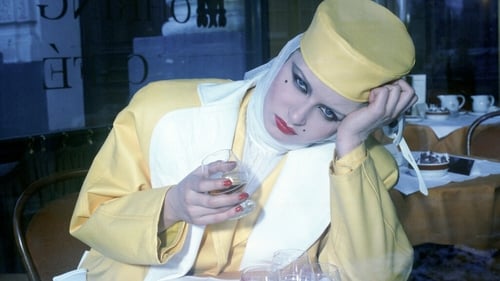
A sartorially resplendent woman of few words arrives in Berlin with plans to live out the rest of her days as a drunkard.

Paul
어느 집단이 있다. 집단 구성원들은 모두 제각각이다. 힐데는 역사 선생이고, 루돌프는 음반 가게에서 판매원으로 일하며, 페트라는 은행장과 결혼했고, 수잔느는 페터의 비서로 일하고, 에드가는 이따금 작곡가로 활동하지만 아버지의 돈으로 산다. 아프리카에서 돌아온 킬러가 집단에 들어온다. 군대서 탈영한 군인 두 명도 가담한다. 하지만 "작전"에 참가하게 되는 사람은 그들 중 꼭 한 명뿐이다. 그러다가 킬러가 경찰에 피살되자 흥분한 집단은 지하조직에 가입한다. 은행을 습격하여 집단은 외국으로 도망갈 비용을 훔친다. 페트라도 경찰에게 피살되자 집단은 자신들 속에 배신자가 있다는 것을 알게 된다.

Production Design
어느 집단이 있다. 집단 구성원들은 모두 제각각이다. 힐데는 역사 선생이고, 루돌프는 음반 가게에서 판매원으로 일하며, 페트라는 은행장과 결혼했고, 수잔느는 페터의 비서로 일하고, 에드가는 이따금 작곡가로 활동하지만 아버지의 돈으로 산다. 아프리카에서 돌아온 킬러가 집단에 들어온다. 군대서 탈영한 군인 두 명도 가담한다. 하지만 "작전"에 참가하게 되는 사람은 그들 중 꼭 한 명뿐이다. 그러다가 킬러가 경찰에 피살되자 흥분한 집단은 지하조직에 가입한다. 은행을 습격하여 집단은 외국으로 도망갈 비용을 훔친다. 페트라도 경찰에게 피살되자 집단은 자신들 속에 배신자가 있다는 것을 알게 된다.

Simonetti
Cahiers du cinéma critic Serge Daney asks whether The Kingdom of Naples is "leftist fiction, kitschy melodrama, photo-roman, a decadent chronicle of a city, opera in a minor key, or simply the first realistic narrative film by Schroeter?" It is all of these and more: an epic chronicle of proletarian family life in Naples from 1943 to 1972 that brilliantly captures the wretched poverty, overwrought passions, and political, religious and economic upheavals of Sicily across two generations. Schroeter assimilates neorealist aesthetics and class sympathies with the tempestuous excesses of popular melodrama, borrowing freely from Rossellini, Pasolini, Visconti, Brecht, and Rossini. (Facets)

Adrian
Voted for in the 2012 Sight & Sound poll

Production Design
Voted for in the 2012 Sight & Sound poll

Antonio
A thriller in which the characters are Latin-American exiles living in Paris. It is also a comedy about artists who play at revolution rather than actually participate in one
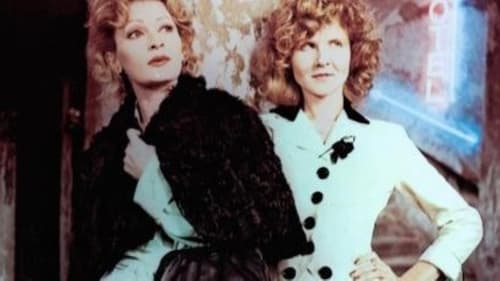
Set Designer
Beautiful, detached, laconic, consumptive Lily Brest is a streetwalker with few clients. She loves her idle boyfriend Raoul who gambles away what little she earns. The town's power broker, called the rich Jew, discovers she is a good listener, so she's soon busy. Raoul imagines grotesque sex scenes between Lily and the Jew; he leaves her for a man. Her parents, a bitter Fascist who is a cabaret singer in drag and her wheelchair-bound mother, offer no refuge. Even though all have a philosophical bent, the other whores reject Lily because she tolerates everyone, including men. She tires of her lonely life and looks for a way out. Even that act serves the local corrupt powers.

Jim
Beautiful, detached, laconic, consumptive Lily Brest is a streetwalker with few clients. She loves her idle boyfriend Raoul who gambles away what little she earns. The town's power broker, called the rich Jew, discovers she is a good listener, so she's soon busy. Raoul imagines grotesque sex scenes between Lily and the Jew; he leaves her for a man. Her parents, a bitter Fascist who is a cabaret singer in drag and her wheelchair-bound mother, offer no refuge. Even though all have a philosophical bent, the other whores reject Lily because she tolerates everyone, including men. She tires of her lonely life and looks for a way out. Even that act serves the local corrupt powers.

Production Design
Nightclub singer La Paloma succumbs to the persistent courting of a chubby rich admirer and marries him. Before the marriage, she was thought to be dying, but soon she is well. She believes her husband's love has cured her, but her efforts to love him begin to fade as she discovers true love with her husband's old school friend.





















